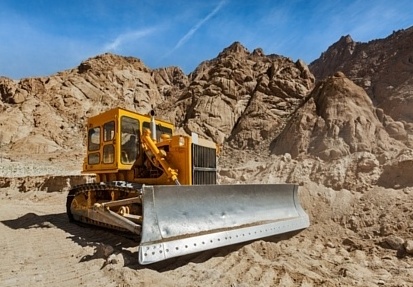
When you start narrowing down on the type of equipment your business needs, it’s a good idea to thoroughly consider the pros and cons of leasing versus buying. There are certain situations when the cost-benefit of one option may strongly outweigh the other.
Last week we talked about the pros and cons of buying equipment. This week we'll explore the advantages and disadvantages of buying.
Buying
Pros:
You will own the equipment, so you can make any alterations necessary. Maintenance is also in your hands, so you can make sure problems get fixed immediately. You won’t have to wait for issues to be addressed or need permission to make changes.
- When purchasing equipment you have the option to sell the equipment when you are finished with it. This is great way to help the business recover some of the cost.
- Tax incentives under certain tax codes are larger for purchasing equipment but have limits. If your equipment doesn’t qualify under specific tax codes, you may be able to leverage a depreciation deduction for the equipment you have purchased for your business. *As I mentioned last week, you should always consult your accountant when thinking about purchasing or leasing equipment.
- Buying can be easier because you don’t have to deal with stipulations of lease agreements and/or contracts. Once you have your financing in place you simply pick out what you need and pay for it.
- You have complete control over what you get because you aren’t limited by a leasing company’s stock. If you want a particular model or brand, you have the ability to order exactly that.
Cons:
- You may have a higher initial cost as opposed to lower monthly payments that may be easier to budget. It may be difficult to pay for costly equipment all at once or through financing. Higher initial costs may keep you from buying exactly what you want and may force you to settle for a lower-cost option.
- If your business requires technology that can get outdated quickly you can find yourself stuck with the equipment because you own it. This puts you in the position to decide if it is worth it to continue to use it, repair it, store it or sell it.
- You are responsible for all maintenance, including costs since you own the equipment. This can get pricey depending on what issues you encounter, and making repairs is not always simple. There is always the potential that you can be burdened with broken equipment that you can’t return or sell. It is always good to completely understand the product warranty to see if it covers repairs and for how long.
Determining costs for equipment through either method should include considerations of tax deductions and/or the potential resale value of the equipment you are looking at possessing. Once you have looked at things from a tax perspective, I feel there are four very important factors to consider:
- You need to look at the potential revenue using this equipment can bring to your business.
- How soon is the possibility of this equipment becoming outdated?
- You need to factor the size of the equipment. Will it cost you anything to store the equipment if you don’t have the facilities to manage the size.
- Consider the overall costs of the equipment.
It is always important to remember that not all business needs are the same. What is good for one business is not necessarily good for another. Businesses are always in different stages of growth. Each decision regarding equipment leasing or buying should be made carefully to best fit YOUR company’s situation and needs.
Our Bank Independent sales officers would be happy to talk to you about your specific needs. If you'd like to schedule a call or visit, please click the button below and we'll happily contact you!

